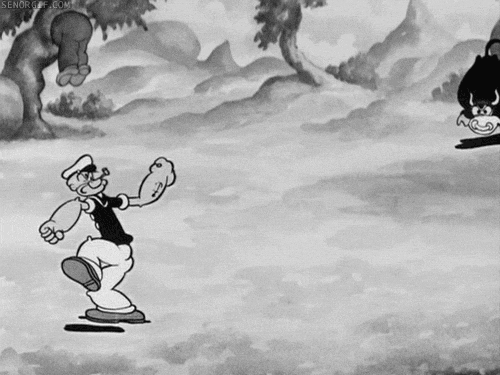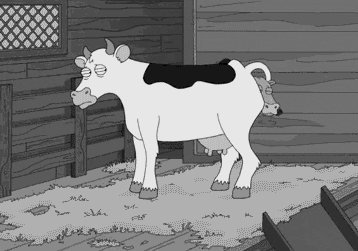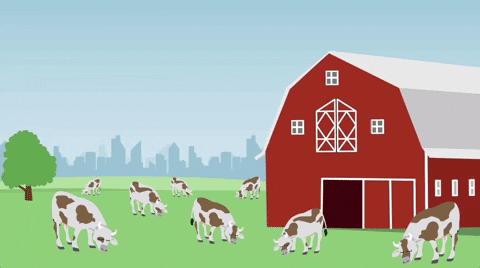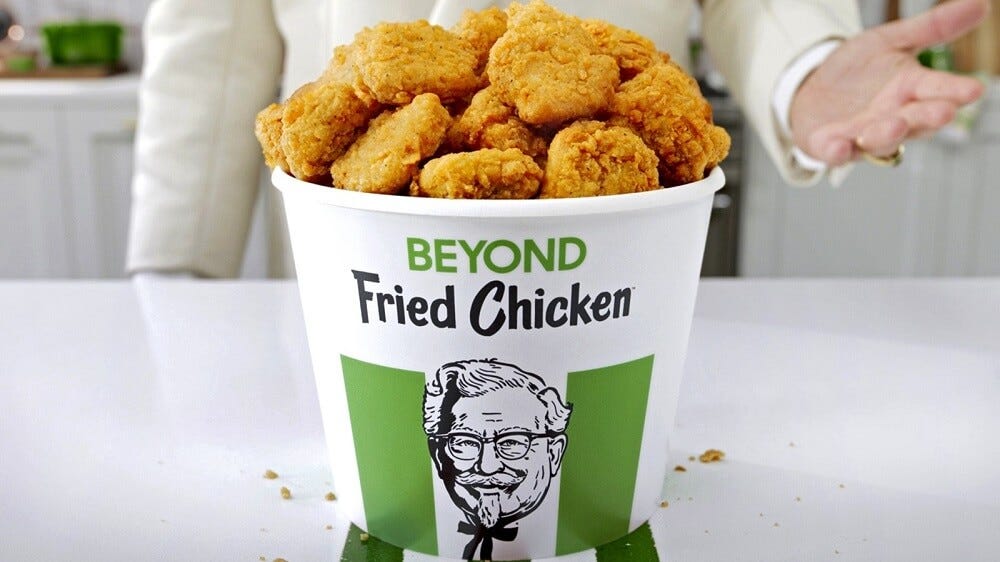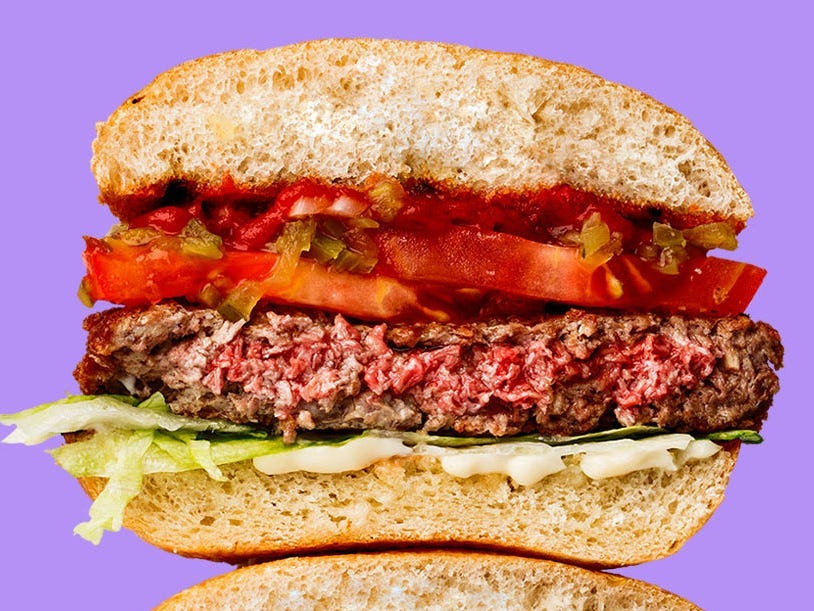Brothers and Sisters, please join me in reciting a very important prayer:
“We love our steaks, we love our pork ribs, but most of all, we love the inefficient supply chain to produce all of our meat(s) and how terrible it is for the environment.”
Amen.
What’s The Big Deal?
Protein, especially steaks, burgers, sausages, lamb chops, and my personal favorite, Popeye’s fried chicken, all share a common denominator.
They’re all really tasty, especially when cooked right and served on a fancy china plate. Unfortunately, they’re also really bad for the environment.
Wait, you mean to tell me that my Thanksgiving feast consisting of turkey and Christmas dinners of New York strip steak is terrible for my waistline and the Earth?
Well, shoot...
Man Loves Meat
At the dawn of mankind, scientists hypothesized that the Earth got significantly hotter and drier, which led to the alterations of our diets from plant-based fruits, leaves, and seeds, to consuming more meats. Thanks to this hotter climate, the lush forest vegetation shrank and the grasslands are now king. With these factors in play, early humans needed a way to consume new sources of energy.
Thanks to these grasslands that popped up, more herbivore animals grazed on them. Fortunately, this led to opportunities for early mankind. While we still sucked at hunting, we were nonetheless making strides.
As history advanced and mankind grew more sophisticated with their hunting arsenal and cooking techniques, we’ve become blessed with the tasty smorgasbord of cooked proteins that we presently enjoy. It’s too bad then, that this all comes at a cost.
If one were to look at the supply chain and the economics of producing meat, it just happens that there’s a lot to be desired.
Man Loves Capitalism
Money talks.
The meat industry itself is estimated conservatively around $90 billion, with some estimates putting a higher figure above $700 billion. When looking at employment figures, farming as a whole employs more than 26% of all global workers; this still doesn’t include the slaughterers, meat packagers, transportation workers, and the butchers/supermarket workers that sell the meat to hungry consumers.
According to a recent United Nations report, meat from animals accounts for the food security of 1.3 billion people globally.
Here in America, the meat industry is a huge force to reckon with. Thanks also in part to our glorious fast-food chains, the average American consumes around 140 lbs of meat per year.
But what are the hidden costs of eating meat? For example, let’s take a look at our water supply.
Bro, Don’t Be Thirsty...
Water is essential for all different types of farming. We just don’t have enough to go around.
In comparison, growing vegetables have a water footprint of 322 liters per kg, and fruits used 962 liters. Not too bad, eh?
However, animals raised for meat... not so frugal when it comes to water. Water consumption for chicken came out to be 4,325 liters, pigs came at 5,988 liters, sheeps drank even more with 8,763 liters, but the heavyweight champion would by far be the cows, coming in at a whopping 15,415 liters.
In comparison, growing wheat only takes up 4,000 liters to produce 1kg of it.
It’s as if these animals... are thirsty.
The water problems also don’t stop there. Water pollution from meat processing plants is a very real concern.
Nutrients from fertilizers and animal excrements, pesticides, soil sediments, metals, and emerging/new but harmful pollutants all carry a big risk of contaminating and poisoning our water supply.
And You Thought Yu-Gi-Oh Monsters Were Nuts…
Don’t worry, it gets even more depressing.
Especially if you’re fond of nature.
Livestock is singlehandedly the world’s largest user of land resources. Estimates of around 80% of all agricultural lands go to livestock farming, crops to feed the animals supplement the hogging of land by taking up 1/3rd of total cropland. Talk about a monopoly.
But how does this all relate to climate change? I just want my steak, damn it!
Just think of it this way. The three-headed conglomerate food monsters of Tyson, Cargill, and JBS contributed more greenhouse gases than the whole of France did in the year 2017.
What can we do as fickle consumers about this?
It’s time food tech startups got to dueling.
Just Beyond Impossible To Solve
Haters and naysayers will say: ignorance is bliss, we need meat to survive, and this is all a liberal hoax to forcefully change our diets to consume more tofu, perpetuated by the Chinese Communist Party.
Conspiracy theories aside, what if there was a way to eat meat, made from plants?
What if I also told you they were made in America? Now, would you be sold?
Present-day, many food tech startups are trying to solve the food issue that we currently face in the world. Out of many, there are three that come to my mind, that are making an effort to improve the way we eat meat and tackle the broader supply chain issues we face.
Just Inc.
Just Inc. is a food startup that has successfully engineered plant-based eggs and mayonnaise from fantasy to reality. So far, their products can be found all across the world. They’re currently trying to engineer plant-based meat which is more sustainable than the current option.
Which then, leaves us with the big boys.
Beyond Meat
Their name says it all, beyond meat. A futuristic meat option based on plants that don’t, well you know, suck.
The company was started by Ethan Brown in the year 2009. Based in Los Angeles, they spent years in deep research and development phase before coming up with a plant-based chicken product, before following it up with a plant-based burger meat option.
Since inception, they’ve gotten heavy funding from Kleiner Perkins, Bill Gates, and Tyson Foods, to help scale up operations and distribution.
As of last year, they are publicly traded on NASDAQ.
Impossible Foods
A food tech startup based out of Silicon Valley, they started their humble beginnings in 2011.
Similar to Beyond Meat, their mission is to produce meat from plant-based alternatives.
After years of intensive research, they came out with their signature product, the Impossible Burger. The meat itself went in to be a smashing success, and quite tasty too. (Yes, I’ve tried it)
Their next goal is to recreate whole cuts of beef, and yes, steaks.
In Conclusion…
While I may love my meat still, we must all acknowledge that the way things are going in terms of farming and producing meat from farm to fork is simply unsustainable.
To take on big meat, we must demand change. We must all have beef with the way we produce meat.
Otherwise, your burgers and fries will be your demise.




